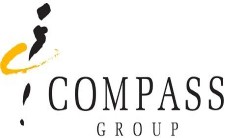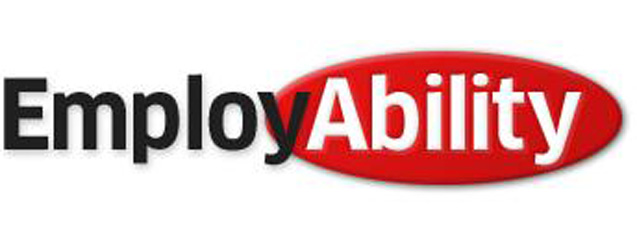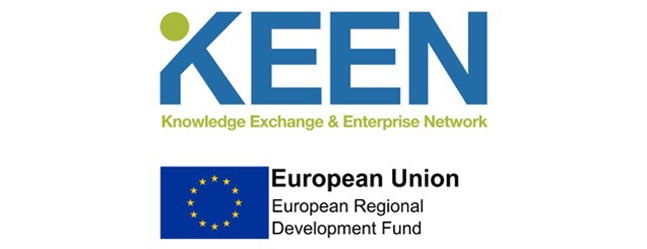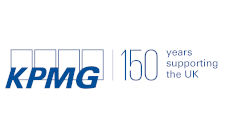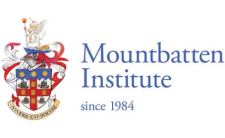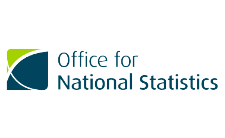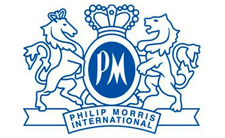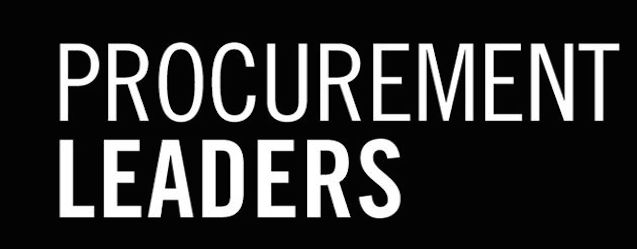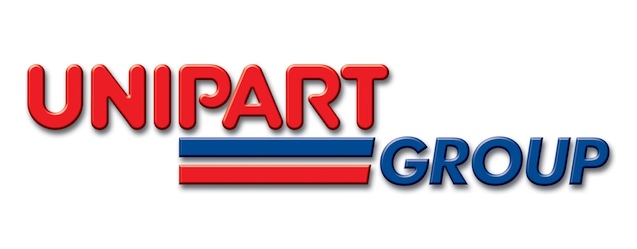Business management covers a wide range of graduate careers. It can be anything from management schemes in a bank, where you may be training to become a commercial, operations or retail manager; managing a large department in a retail outlet, such as in M&S or achieving management status in any of the business disciplines such as sales, marketing, HR or finance.
With management, it comes as no surprise that you need to be good at multi-tasking, have strong interpersonal skills, have the ability to inspire and motivate others, be analytical and be able to see the big picture.
You also need to demonstrate competencies such as influencing and achieving. With The Co-operative, for example, graduates must “demonstrate these behaviours in a way that matches with the culture of our organisation. For example, graduates need to be able to demonstrate that they can work with others in team and are able to share resources and information with others in their group,” says Shona Mckenzie, a graduate recruitment officer for The Co-operative, which offers a business management graduate programme.
So what will you be managing? With The Co-operative graduates on the general management programme manage a range of projects. Shona explains: “Our programme offers graduates an opportunity to choose three four month projects across a whole range of our businesses and functions.
“A graduate could choose to manage a project in HR in Funeralcare, then marketing in our food business, and then procurement in our corporate function. Graduates will develop experience of managing different stakeholders and managing different types of resources and processes.
“We look for graduates who are ambitious and who have the desire to become future leaders of our business. We also want graduates to have a firm understanding of the nature of our business and the differences between a co-operative structure of business and a PLC. It is important to us that graduates are passionate about our way of doing business and our unique business model.”
Graduates must be interested in business and management, and “demonstrate commercial awareness and an understanding of different business terms as well as an awareness of customers, competitors, and the different industries we operate in,” adds Shona.
Although some graduate may have business management-type degrees, there is not set degree that you need to achieve management status. Many of the skills are developed and refined once you enter the work force. Graduates need to have a passion for business and the company they hope to work for.
Consultancy
A career in consultancy means working with businesses on a range of issues to help improve efficiency. This can involve IT systems, finance, transactions, mergers and acquisitions – basically any core area of the business that keeps it running!
According to the Graduate Recruitment Bureau, consultancy jobs are becoming an increasingly popular choice as an alternative to entering the banking and finance sector, offering an equivalent intellectual challenge – and with starting salaries reaching from £20k to upwards of £30k, similar financial rewards. Some companies even offer a golden hello – for example, graduates starting at Accenture receive a joining bonus of £10k.
IT consultancy
This involves assessing and improving the performance of existing IT and business practices; testing IT security and recommending improvements; and advising organisations about how to keep their IT systems up to date in the future. IT consultants may be involved at any stage of a project, from pitching for a contract to project management to after sales support. And under that catchall title there are a spectrum of different roles requiring different levels of IT competency, from the basic level of a project manager to the technical expertise of a developer.
Graduates will be expected to work as part of a large team – long term, if they achieve project manager status they will be directing, co-ordinating and pitching the projects to the clients.
Consulting at an accountancy firm
Management consultants in the big accountancy firms help businesses to “grow faster and work smarter,” according to PwC. At PwC graduates can join management consulting, strategy consulting or economic consulting and each of these disciplines have different requirements:
Management consulting
Management consulting helps organisations improve the way they operate; accelerate their growth; reduce their costs; manage their risks; develop their talent; and change the way they do business.
In your team you’re likely to be supporting the project manager, carrying out detailed analytical research and presenting this back during team meetings. You’ll also spend a lot of time with clients dealing with issues as they crop up and getting valuable exposure to different types of project and diverse industries.
To thrive in this practice, you’ll need to welcome change. And you’ll not only be analytical and numerate, you’ll also be articulate and confident when it comes to saying what you think. Flexibility, an open mind and a strong team ethic are vital too.
Strategy consulting
This tackles the key, ‘high-level’ strategic issues faced by CEOs. You’ll work with major global corporate clients and financial investors, helping them decide whether buying or selling makes good business sense.
A consultant a PwC would evaluate business plans and strategies against market performance and competitor strength so clients understand which companies are attractive acquisitions.
For each particular project we bring together a specific team and after carrying out research, strategic analysis, modelling, interviews and practical field research, you’ll develop strategic insights for the project, discuss them with your team and present recommendations to clients.
You’ll be exposed to a wide range of clients, issues and industry sectors, including: government & public sector, consumer goods, financial services, media & entertainment, pharmaceuticals and healthcare, retail, technology & communications, travel & leisure.
A role in this team requires a combination of razor-sharp commercial awareness, superb time-management and analytical skills plus the confidence and credibility to present your opinions to senior colleagues and clients.
Economics consulting
Economics consulting specialises in making recommendations, validating strategy and coming up with expert economic advice for commercial and public sector clients.
You’ll deliver practical advice that makes a real impact on business’s bottom lines. Your clients will be in the boardroom, in front of a regulator or within Government in the UK and across the globe. You will be providing help in the form of advice, reports, studies and policy recommendations.
As a graduate economist, you’ll have the opportunity to work across all areas, such as assessing the impact of macroeconomic changes on markets, organisations and consumers, through forecasting and scenario planning; public policy, project and investment appraisals, as well as sustainability and environmental economics. Before long you’ll be meeting clients face to face, tackling their issues first-hand and helping the firm to win business.
You’ll also have a programme of training and on-the-job coaching plus support for professional qualifications like the Chartered Financial Analyst. You’ll develop know-how in technical areas such as econometrics, mathematical modelling, cost of capital and sustainable economics.
This practice calls for an agile, creative, enquiring mind that can spot those vital, telling connections between economic data. You’ll also be writing reports and giving presentations, outstanding communication skills are also essential.
For all types of consulting, recruiters look for bright graduates who have at least a 2:1 degree and in some cases, 340 UCAS points. Graduates must be articulate, analytical, problem-solving, convincing, confident and have excellent interpersonal skills. Most degree disciplines are accepted, with the exception of economic consulting whereby firms like PwC ask for a degree with a strong economic element.
Life as a consultant can involve long hours and time spent away from family. Lisa Chakraborty, a graduate at Capgemini, says: “Though I love the travelling, sometimes it gets to you because when you come back at the weekend you don’t have long to catch up with your family and friends.”
However, for the right graduate career progression can be fast and the benefits and earning potential is large.
What happens when experiments become real? For over 25 years, we have partnered with organisations helping them become innovative, experimentation engines. We help our clients invent new businesses, products, brands and services. We believe that in a world changing so rapidly, the most valuable capability will be experimentation. Organisations that are future ready will be […]
Abellio operates public transport contracts in the UK and Germany. Every day in the UK over 16,400, Abellio people provide safe, easy and reliable public transport for more than a million passengers on our services. In the UK we operate buses within our Abellio London business, as well as train services for ScotRail, Greater Anglia, Merseyrail, […]
The Manager in Training program is a blended learning program focused on immersing the trainee in all aspects of managing a multi-million dollar business for Abercrombie & Fitch. Training takes place in all of our domestic and international store locations. Each week of training focuses on a different aspect of running the business. Every trainee […]
ActionCOACH is the world’s number 1 business coaching franchise, with offices in 80 countries. The UK currently has a growing team of over 250 business coaches. If you’re awarded a business coaching franchise, you will receive world class training with global, national, and local support every step of the way. You will also have access to over 3,500 business […]
Are you an enthusiastic graduate or postgraduate with an interest in healthcare? Want to work hard, achieve great things and make friends for life? Adelphi Group supports the world’s leading pharmaceutical and healthcare organisations to help improve patients’ lives across the globe. Adelphi Group has offices across the globe with over 700 employees worldwide. Our […]
Passion. At adidas, it connects us – whether we’re working for adidas or Reebok. We’re all working towards a future motivated by passion, original thinking, and the desire to build upon a proud legacy. We are recruiting graduates to join our teams on a 12 month internship. We are looking for people who share a […]
We’ve been going since 1890, and today, Allianz is a global leader in insurance and financial services, with more than 150,000 people working in more than 70 countries serving over 75 million customers. We’re also one of the world’s top five asset managers, and our client base, like our talented workforce, is incredibly varied. And […]
At Admin Re we have a 2,000-strong team built on a wide range of skills and a wealth of experiences. We’re already a highly-respected name in the ‘closed book’ Life Insurance and Pensions market. We’re a strong performer that’s successfully transformed our business over the past few years – through the energy of our people […]
Advanced is a leading provider of software and IT services to the UK public, private and not for profit sectors. We enable organisations to improve efficiency, reduce costs and drive growth through innovative and cost effective software solutions. Covering three main areas: Health & Care, Business Solutions and Manager Services, we offer premium services to […]
We’re bursting with pride here at Aldi. We’re one of the UK’s fastest-growing supermarket chains and we’ve just opened the doors to our 870th store with plans to have 1,200 stores by 2025. You’ll also find thousands of Aldi stores across the world from Germany and Hungary, to Switzerland and Slovenia. We’re a multi-award-winning employer (for example, […]
Alexander Partners provides individualised mentoring and career coaching for final year students, recent graduates and school leavers. Our unique approach helps our clients transition successfully into the workplace. We partner with them to develop a clear vision for their future and strategies for success. What makes Alexander Partners different from recruitment agencies? We do not […]
Who We Are Amazon is made up of builders and innovators, all of whom bring diverse backgrounds, brilliant ideas and varying points of view with them. Our rich tapestry of team members, from all around the world, means that we’re looking for great minds just like yours. Together, we’re pushing the boundaries of possible. […]
Who we are Atomic are a full service field sales agency – experts at getting products where they need to be, on shelf and in the hands of the consumer. With a range of Field Sales services to choose from, we work alongside clients to come up with optimum Field Sales solution for each unique […]
Cargill provides food, agriculture, financial and industrial products and services to the world. Together with farmers, customers, governments and communities, we help people thrive by applying our insights and 150 years of experience. We employ 152,000 people in 67 countries.
Baringa Partners is a diverse and exciting management consultancy with an award-winning culture.Our in-depth knowledge and industry experience allow us to empower every business we work with to discover and fulfil its potential. We are home to innovative thought, design and delivery.Our unique culture has been recognised and rewarded by organisations including the National Business […]
Start your own Extraordinary Story Bentley’s journey began over 95 years ago. As part of the Bentley graduate scheme you could weave your own story into ours, following in the footsteps of the many extraordinary people who have made Bentley the marque it is today. Bentley is a luxury brand unlike any other. We set […]
Worldwide financial communication This is more than what we offer. It is who we are, in 126 countries. Constantly making ourselves better, asking more of ourselves. Giving more to the people who count on us for news and information. We helped change the way that the world looks at financial news and information, and that […]
Cancer Research UK is the world’s leading independent charity dedicated to beating cancer through research. Our ambition is to accelerate progress and see three in four people surviving the disease by 2034. To achieve this, our strategy is focused on preventing, diagnosing and treating over 200 types of cancer. We have discovered new ways to […]
ConSol Partners are a leading recruitment consultancy based in the heart of the City with a specialism headhunting key talent for digital media, internet and some of the biggest brands in the world. As a highly successful company we have rapid growth plans on a worldwide basis. Our Headquarters are in London, with regional offices […]
Cerillion plc is a world leading provider of business support systems with more than 20 years’ experience delivering its solutions to the telecommunications industry. Cerillion plc floated on the London Stock Market in early 2016, following a successful period as a growing private company. Joining Cerillion at this early stage as a public company offers […]
With Consulting still a core part of our offer, we’re active in over 30 specialist disciplines, which means that whatever area of professional services you’re interested. “Our breadth and depth of service means we can offer you a wide range of career opportunities.” Providing fully integrated advice across Audit, Tax, Consulting and Corporate Finance, we […]
We are the largest, leading catering and support services company in the world in around 45 countries worldwide and employ around 60,000 people in our UK and Ireland business. Although you may not have heard of us before, it is highly likely that you would have tasted our food, experienced our services or known someone […]
The Department for Transport is a ministerial department that supports the transport network to keep Britain on the move. It delivers some of the largest infrastructure projects in the country and is dedicated to investing in its people Commercial Development Programme The Commercial Development Programme (CDP) is a three year programme which develops thorough commercial […]
At Deutsche Bank, we’re changing what it means to be a bank. It’s about making a positive difference and cultivating new perspectives. That’s why with us, your ideas have impact. We’re always looking for creative thinkers who are ready to make a difference from day one. If you want the opportunity to shape your own […]
The deVere Group was launched in 2002 and due to our expertise in wealth advice and training we are now the world’s leading independent financial consultancy. Our graduate Academy training offices are in New York, Abu Dhabi, Dubai, Geneva, Prague, Paris, Moscow, Kuala Lumpur, Jakarta, Shanghai, Tokyo, and Sydney and we now have further locations open […]
Founded in 1969, DHL is the world’s leading logistics company. Our 395,000 people in over 220 countries and territories work every day to help our customers cross borders, reach new markets and grow their businesses. Behind every weekly shop, every vital prescription and every new car is a business that relies on an efficient, reliable, […]
Dixons Carphone is Europe’s number one electrical and telecommunications retailer and services company, with more than 40,000 colleagues across nine countries, including the UK and Ireland. Every day, we use our people’s expertise to reach out and help new customers. What’s more – we’re exploring extraordinary new markets, from wellness to security, so that in an ever more connected […]
EmployAbility is the not-for-profit organisation dedicated to assisting students and graduates who have dyslexia, any other disability, long term illness or mental health condition into employment. At EmployAbility we offer free support, guidance and advice throughout the recruitment process and beyond, including: * internship and graduate opportunities * how to produce effective application forms and […]
Established in 1819, ESCP Europe is the oldest business school in the world. Its mission is to develop the next generation of transnational business leaders, preparing them to embrace the opportunities offered by cultural diversity. With its six urban campuses in Berlin, London, Madrid, Paris, Turin and Warsaw, ESCP Europe’s true European Identity enables the […]
Challenging. Inspiring. Life-changing. Be part of Experian’s vision and experience a career that encompasses all of this and more. Our world is built on data. It’s all around us, growing in power and influence every day. We believe data has the power to change lives. By helping people and organisations make the most of their […]
Farmfoods are a family business with ambition. Originating in Aberdeen in 1955, we now have over 320 shops throughout the UK. We aim to offer sensational value to our customers on a great range of everyday family goods. We back up our sensational value with a focus on delivering an ‘old fashioned’, genuine and friendly […]
About FDM Group FDM Group is an award-winning company and the market leader in the Recruit, Train and Deploy industry. We are renowned for our dynamic Careers Programme, which transforms graduates, returners to work and ex-forces personnel into IT and business professionals before deploying them across our client base. We are proud of our diverse […]
GLG is the world’s leading platform for on-demand professional learning. Businesses rely on GLG to learn from 650,000+ member-experts; clients look to address complex strategic challenges and make better business decisions within a rigorous compliance framework. Headquartered in New York City, GLG’s 2,000+ employees work from offices in 12 countries.
Heathrow Airport is a city within a city. Joining us is a chance to build your career in an organisation that matters to millions. To create great experiences for the 210,000 (and counting) passengers who pass through our doors each day. Life with us means exploring unlimited opportunities. Making a real difference to people who […]
ABOUT GLOBALDATA We are a world-class data and analytics company, helping our 4,000 strong client base to decode the future to be more successful and innovative. We work together to turn raw data into trusted intelligence, deliver leading edge content and discussion through our events, and provide bespoke consulting solutions; serving some of the most […]
Go Abroad China is an established and leading provider of paid internships in China and Chinese language programme in China. For over 13 years, our dynamic and guaranteed programmes have attracted over 4000 talented undergraduates, graduates and young professionals from over 80 countries globally, who have all gained professional and interpersonal skills, keeping them ahead […]
Inside Marketing are the leading B2B technology lead generation agency for EMEA. Recently named one of the Sunday Time’s ‘Best Small Companies to Work For’, we help global brands to increase growth with unique direct, digital and social marketing campaigns. Our clients include a mixture of Tech giants such as Oracle, SAP, Google and IBM […]
KBR provide consulting, technology, engineering, and construction solutions for a wide range of markets, from aerospace and defence to energy and chemicals to intelligence and beyond. Today, we employ more than 38,000 people globally, with customers in more than 80 countries and operations in 40 countries.
Knowledge Exchange & Enterprise Network (KEEN)
Are you a graduate who is: KEEN to kick start your career? Looking for a hands-on role? Open to a 6 – 18 month job? Yes? Then KEEN is just for you! The Knowledge Exchange & Enterprise Network (KEEN) is a graduate recruitment programme designed to give bright and talented graduates a platform to launch […]
KPMG in the UK is part of a global network of member firms. Over the last 150 years our UK firm has supported businesses to grow, supported our people to achieve and supported our communities to thrive. Our largest practice is Audit, which provides independent challenge and delivers quality audits to organisations of all shapes and sizes. […]
We founded Kubrick to offer organisations another way to solve their data challenges. We do this by employing the best junior professionals and preparing them in our data labs to become the next generation of data specialists. We knew from day one at Kubrick, the way in which we developed our people had to set […]
LGPS Central Limited is an asset management company, regulated by the Financial Conduct Authority (FCA), managing the pooled assets of nine Midlands-based local government pension funds. With combined assets of approximately £40bn, and representing the retirement savings of over 900,000 scheme members across over 2000 employers, LGPS Central Limited’s Partner Funds are; Cheshire Pension Fund, […]
Mitie provides facilities management, consultancy, project management and a range of specialist services that connect people with innovation and technology; helping our clients go beyond FM to the Connected Workspace. We work in partnership with organisations to deliver long-term value, offering a wide range of services – from real estate and energy consultancy, compliance, risk […]
“Take care of your employees and they’ll take care of the guests” was the philosophy of our founder J.Willard and Alice Marriott in 1927. Marriott, where you belong! Discover the power of belonging. At Marriott, we feel it every day. It comes from being recognised, from knowing Marriott sees talent in each of us and it comes […]
Established in April 2014, we are a joint venture between Mitsubishi Heavy Industries (MHI) and Vestas Wind Systems A/S (Vestas). Our parent companies are two of the global leaders in wind and energy, inspiring and leading us forward. Our track record in offshore wind dates back to 1995, but in onshore wind our roots can […]
The Mountbatten Program was established in 1984 to connect top global businesses with the brightest young professionals. We provide a career-defining program of international internship in a leading organization, optional Masters post-grad study program, and cultural exchange, along with a powerful alumni network of more than 7,000 people across 45 countries. We create opportunities for […]
NHS – The Princess Grace Hospital
A healthcare organisation responsible for the successful management and delivery of healthcare services provided to over two million people living in North West London, ensuring local residents receive high quality, modern and sustainable healthcare services.
Office for National Statistics
ONS are the UK’s largest independent producer of official statistics and its recognised National Statistical Institute. Our statistics are in the media just about every day and used across government and by ministers for policy making, the evaluation of government performance and informing public debate.
About Us One of the UK’s leading general insurance and financial services companies, NFU Mutual has been meeting our customers’ needs for over 100 years. Our employees are important to us. We empower and inspire them to perform, offer opportunities to grow and we recognise and reward their contribution. They are proud to work for […]
Joining the analytical team at ORH will enable you to apply your technical and problem-solving skills to real-world issues. Providing data-oriented evidence to our consultants, you will be directly influencing the decision-making at emergency services around the world. As a result of expansion into the US and Europe we are looking for a numerate graduate […]
Philip Morris International (PMI)
At Philip Morris International, we’re dedicated to doing something very dramatic – replacing cigarettes with the smoke-free products that we’re developing and selling. That’s why we have a total of over 400 dedicated scientists, engineers, and technicians developing less harmful alternatives to cigarettes at our two Research & Development sites in Switzerland and Singapore. It’s […]
Our vision Our vision is to build the world’s ‘most valued’ procurement network, a unique and vital destination that connects, inspires and accelerates our members to become more successful. Who we are Founded in 2004, we are a multi award-winning business intelligence and networking company specialising in the area of procurement, sourcing and supply chain […]
Opportunities are at the heart of a career with PwC. Our purpose is to build trust in society and solve important problems for our clients, helping them tackle business challenges and improving how they work. Graduates can join Actuarial, Audit, Consulting, Deals, Legal, Risk Assurance, Tax or Technology. PwC’s aim is to be ‘the leading […]
QA is a private UK Higher Education provider offering foundation programmes through to postgraduate degrees, through partnerships with UK-based universities. A wide range of subject areas are covered through QA’s partnerships including: Accounting Business Computing Cyber Security Digital Marketing Events Management Project Management Web Development and many more All of these courses are delivered in […]
The change in our world is more profound than ever, driven by a new scale and speed of urbanisation, digitisation and industrialisation. New technologies, enabling distributed and connected energy for the first time, challenge us to redefine the way we live our lives. We believe access to energy is a basic human right. We want […]
29 years of experience. 23 million customers. Seven countries. Sky, Europe’s leading entertainment and communications business, is more than just television, mobile and broadband. With pioneering technology, innovative minds and forward-thinking teams, they make the future happen. People drive Sky’s success. With programmes in Software Development, Technology, or Commercial (Finance, Marketing and more), Sky looks […]
Sopra Steria is the European leader in digital transformation. We provide one of the most comprehensive portfolios of end to end service offerings in the market: Consulting, Systems Integration, Software Development and Business Process Services. We are trusted by leading organisations in the public and private sectors to deliver successful digital transformation programmes and support […]
SRS UK is a subsidiary of Stadler Service AG, Switzerland. SRS UK provides a train maintenance service for a growing number of clients in the UK. In the next few years over 100 new Stadler trains will be joining the English railway network. This is an excellent prospect for SRS UK, which supports the maintenance […]
Sparta Global is a leading provider of technology consulting services providing cross-functional teams to power short-term and long-term projects with relevant skills within government and private sector organisations; fintech, media, insurance, retail, legal, travel, property, technology, start-ups – for over a hundred organisations within the UK. We invest in recruiting high-calibre graduates and build them […]
uLeague is a career service platform that offers professional pathways in Digital Marketing, Accounting, Entrepreneurship, Trading, and Banking & Finance, which are accompanied by a suite of tech-enabled tools for professional development. We pick the courses for the user based on their professional goals, we then tailor the learning pathway to suit each person’s level of […]
Unipart Group is the best place to learn lean. That’s a bold statement, but one we can measure up to. We have some of the industry’s best lean ‘sensei’ who deliver learning, and we can show how our lean tools and techniques (which we’ve grouped together and branded ‘The Unipart Way’) are actually being used […]
UNIQLO is a modern Japanese company that inspires the world to dress casually. UNIQLO has enjoyed strong growth by offering high-quality casual wear at reasonable prices based on its SPA (Specialty Store Retailer of Private Label Apparel) business model, which spans product design, manufacture, distribution and retail. The first UNIQLO store opened in 1984 in Japan. […]
At Venquis you’re not just an employee, you’re an owner. We’re co-owned. 100% of the equity is owned by our employees meaning that you can own a valuable slice of an award winning, fast growing and successful recruitment business. We have a market leading commission structure, up to 30% on everything you bill, un-capped, meaning […]
Remote internships are available with companies of varying size, sector and industry so that you can gain valuable experience with companies tailored to your choice and so boost your CV. There are fantastic opportunities for you to do an internship with international or domestic companies, without having to worry about the travel and living costs. […]
Vodafone is a leader in technology communications through mobile, fixed, broadband and TV. We have extensive experience in connectivity, convergence and the Internet of Things, as well as championing mobile financial services and digital transformation in emerging markets. Since making the first mobile call in the UK on 1 January 1985, Vodafone has grown into […]
bet365 is the world’s favourite online sports betting company serving over 80 million customers across the globe and employing over 6,000 people. With a record for innovation, we offer award-winning, industry-leading betting and gaming experiences and pride ourselves on the standards of customer service we deliver. Our game-changing In-Play betting product and comprehensive sports Live Streaming […]
Our Company Betting makes sport more exciting and Betfair makes betting more exciting. Betfair is a passionate, forward-thinking company where things are always happening. Sport happens minute-to-minute, in real-time, and that’s how we like to think too. We want people who are always asking ‘what’s next?’ Betfair currently runs three distinct products – the world-first/world-famous […]
We are Newton. We’re a team of the brightest and most curious minds with a fundamental belief that every organisation can be better. We crack some of the toughest business and public sector challenges of the day. Not with reports or copy and paste thinking. But by pinpointing and implementing the changes that will make the […]
Brightsparks is a unique business focused on the Student and Graduate Market; we directly employ thousands of students in temporary roles every year and work with them and their wider network to launch them into their careers once they graduate. We are delighted to partner with Xchanging to manage their graduate campaign. Xchanging is a […]






















